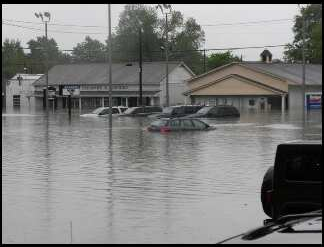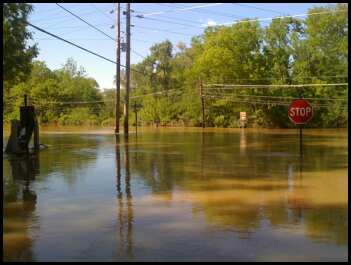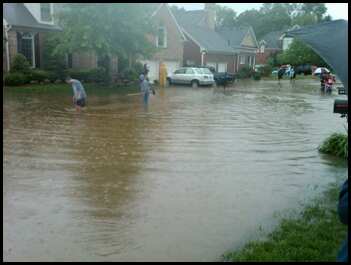As flood waters remain on the streets of Tennessee, we are learning that few residents had flood insurance to cover their losses. The City Paper, a Nashville-based online news site, reports that fewer than 4,000 homes in Davidson County, Tennessee (which includes Nashville) were covered by flood insurance at the end of 2009 “meaning that the vast majority of homes damaged or destroyed by this weekend’s flooding will not be compensated for their losses.”
The online news source also claims that less than 1.5% of all homes in Davidson and surrounding counties have flood insurance. A surprisingly low number, which, like in most cases of natural disasters, only comes to light after a catastrophe. With such a lack of insurance, FEMA will likely provide much of the financial aid needed. Most of the homeowners who did purchase flood insurance, only did so because it was required in the terms of their mortgage.
Some Nashville-area residents with mortgages that didn’t require flood insurance even asked their real estate agent, builder or lender about it — wondering if it was necessary. The response was mind-boggling, as stated in USA Today by a Davidson County resident whose home was ravaged by the flood waters:
“They all said, ‘You’re not in a flood plain, so you don’t need it,'” recalls [Tiffany] Wiggers, who left her home Sunday in a rescue boat with her dog. “I was like, ‘FEMA and the bank said we won’t need it, so we’re in the clear.’ “
Statements like that are maddening, but the residents of Tennessee’s flooded areas are not dwelling on their massive uninsured losses. As one resident states, “We really don’t have time right now to point fingers at anyone.
It’s time to come together and help your neighbors and make sure your neighbors have food, shelter and clothing.”
The weekend rains that pummeled middle Tennessee set a Nashville record of 14 inches (all falling within about 48 hours). At least 30 deaths in Tennessee, Kentucky and Mississippi are blamed on the floods and Nashville Mayor Karl Dean said the city’s damage will top $1 billion.
Below are a few pictures from the brother and nephew of yours truly. They are, unfortunately, Nashville residents.



